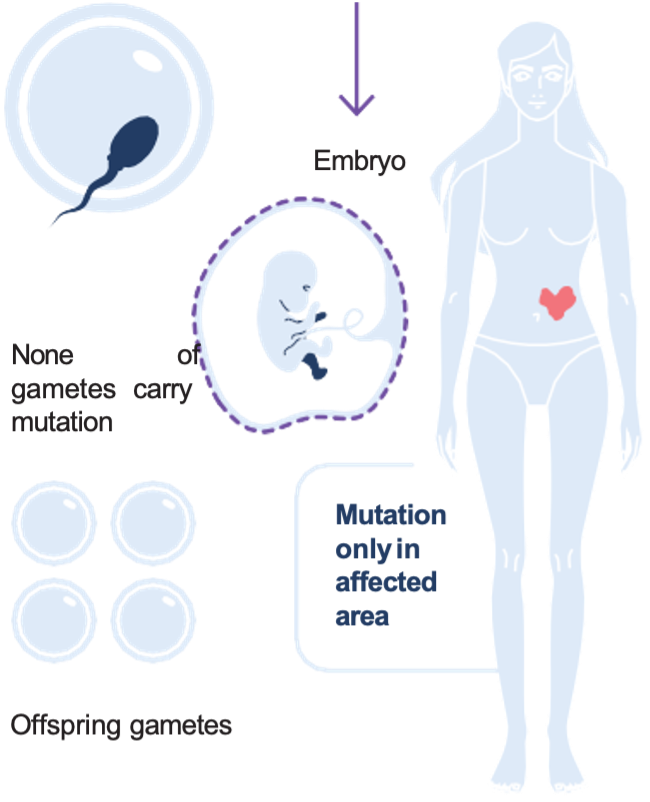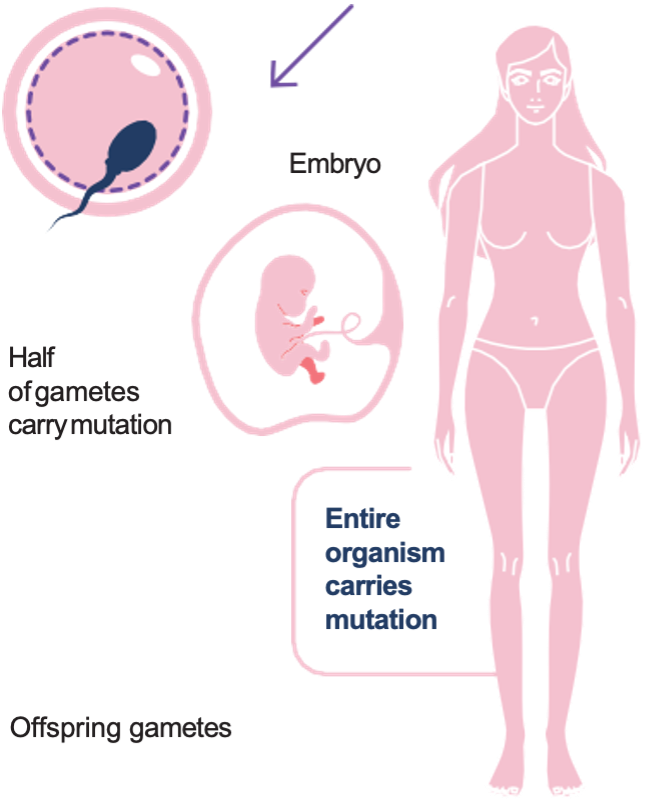SOMATIC TESTING
Most cancer is the result of acquired, or somatic, mutations that occur in a cell. Cancers that occur because of somatic mutations are referred to as sporadic cancers. Somatic mutations are referred to as sporadic cancers. Somatic mutations are often caused by environmental and lifestyle factors such as radiation, chemical exposure, tobacco use, and aging.
Somatic Testing (or tumor testing) is typically performed on tumor tissue and aims to provide personalized care.
Somatic Testing (or tumor testing) is typically performed on tumor tissue and aims to provide personalized care.
Somatic Testing can Provide Information Related to:
- Targeted Therapy: Identifies alternative therapeutic agents or potential clinical trials.
- Tissue Type: Identifies the type of tissue that a tumor originated from to help determine appropriate treatments.
- Recurrence Risk or Prognosis: Predicts prognosis or the likelihood of recurrence.
Liquid biopsy testing is a type of somatic testing that analyzes circulating tumor DNA (ctDNA) in the bloodstream to identify therapeutic targets and monitor response. Liquid biopsy has the advantage of not requiring a tumor biopsy, which sometimes can't be performed or can't provide adequate tissue.
In some cases, tumor-testing labs may request a blood sample to assess the patient's germline genetics (paired tumor-normal testing). Somatic tests are not designed to report on germline mutations. Therefore, all individuals undergoing somatic testing should be assessed for a hereditary cancer predisposition syndrome and referred for separate germline genetic testing, if indicated.
In some cases, tumor-testing labs may request a blood sample to assess the patient's germline genetics (paired tumor-normal testing). Somatic tests are not designed to report on germline mutations. Therefore, all individuals undergoing somatic testing should be assessed for a hereditary cancer predisposition syndrome and referred for separate germline genetic testing, if indicated.


GERMLINE TESTING
A mutation found in every cell in the body is called a germline mutation. Germline mutations are typically inherited from a parent. When the germline mutation is not inherited, it is called a de novo (new) mutation. Cancers caused by germline mutations are called hereditary cancers and account for 5-10% of all cancers.
Germline testing can be performed on blood, saliva, or cultured fibroblasts (for individuals with a hematological malignancy) to assess for an underlying hereditary cancer predisposition syndrome.
Germline testing can be performed on blood, saliva, or cultured fibroblasts (for individuals with a hematological malignancy) to assess for an underlying hereditary cancer predisposition syndrome.
Germline Testing is used to:
- Explain why the patient developed their current cancer.
- Help identify targeted therapies.
- Indicate if patients are at an increased risk for additional, new cancers. This allows the patient to pursue enhanced screening or preventative surgeries to manage their risks.
- Identify if family members are at risk for hereditary cancer.
Testing Implications
Both somatic and germline testing can have unexpected implications.
- Germline testing may identify a mutation that is not directly related to the reason for testing - referred to as an incidental finding.
- Germline test results may provide information about biological relationships within a family (i.e., non-paternity or consanguinity).
- Somatic testing may lead to the discovery of germline variants. Somatic variants suggestive of a germline mutation must be confirmed by a high-quality germline testing laboratory.
It is important to discuss the benefits, risks, and limitations of genetic testing with a genetic specialist, such as a genetic counselor.